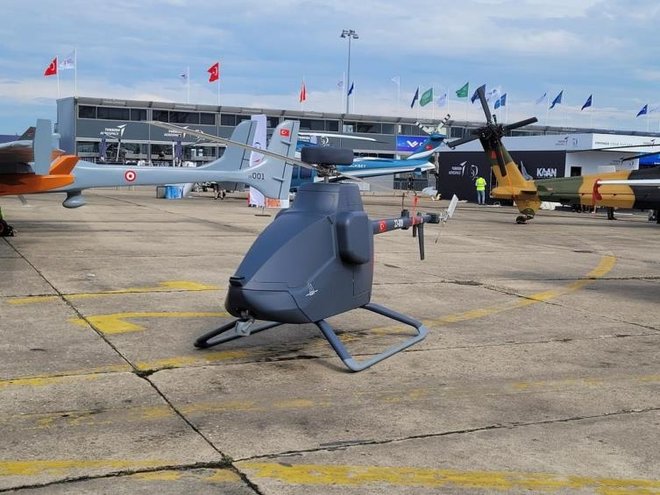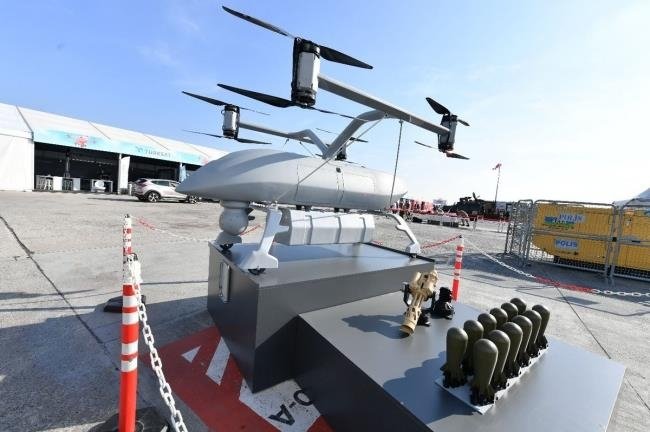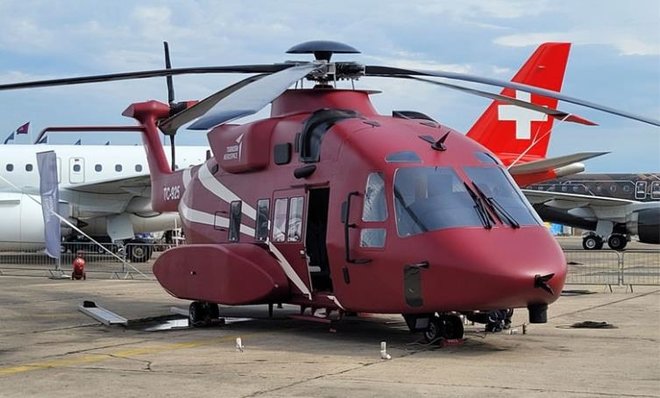The development of cargo UAVs has been a significant focus for the Turkish defense industry, as it seeks intermediate solutions to meet the needs of unmanned systems.
Several projects, initiated by both private sector companies and public institutions since 2019, are now materializing.
The Cargo UAV showcased by TAI at the Paris Air Show is a prime example. This versatile platform will have a crucial role in military logistics, particularly in regions facing logistical challenges.

The initial version of the Cargo UAV, exhibited as a small model, is designed to carry a useful load of up to 50 kilograms. This capacity allows for the transportation of valuable supplies such as weapons, ammunition, fuel, equipment, and provisions.
TAI's Cargo UAV is expected to demonstrate agility, speed, and high levels of safety, building upon the established infrastructure used in other TAI air platforms.
The incorporation of subsystems from previous UAV models, such as ANKA-2, Aksungur, and ANKA-3, suggests a similar approach in autopilot and avionic systems.

While the current version of the Cargo UAV appears compact, its primary objective is to swiftly reach targeted locations and execute agile movements, despite limited airtime.
Considering TAI's working methodology and field requirements, it is anticipated that larger versions of the Cargo UAV will be developed in the future.
The Cargo UAV's design enables it to carry various types of payloads, including cameras and potentially other equipment like radars or ammunition. This versatility ensures the platform's applicability in military and non-military scenarios.
For instance, Cargo UAVs can play vital roles in healthcare, transporting drugs to areas in need. Similarly, in high-risk or disaster-stricken areas, these UAVs offer a means to deliver food supplies that would otherwise be challenging to access by land.

One important aspect to consider is cost. Currently, Türkiye relies on manned helicopters for most of the operations mentioned above, which entails risks for the pilots and crew and increases overall expenses.
By employing cargo UAVs, Türkiye is taking significant strides towards the future battlefield, resolving supply and transfer challenges with unmanned platforms.
While an official statement regarding the integration of the TUSAŞ Cargo UAV into the inventory is yet to be released, ongoing tests indicate that progress is being made rapidly.